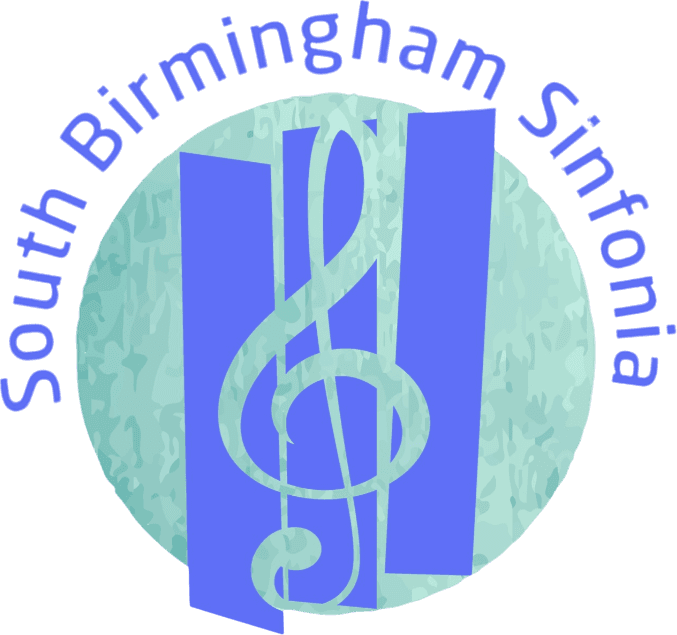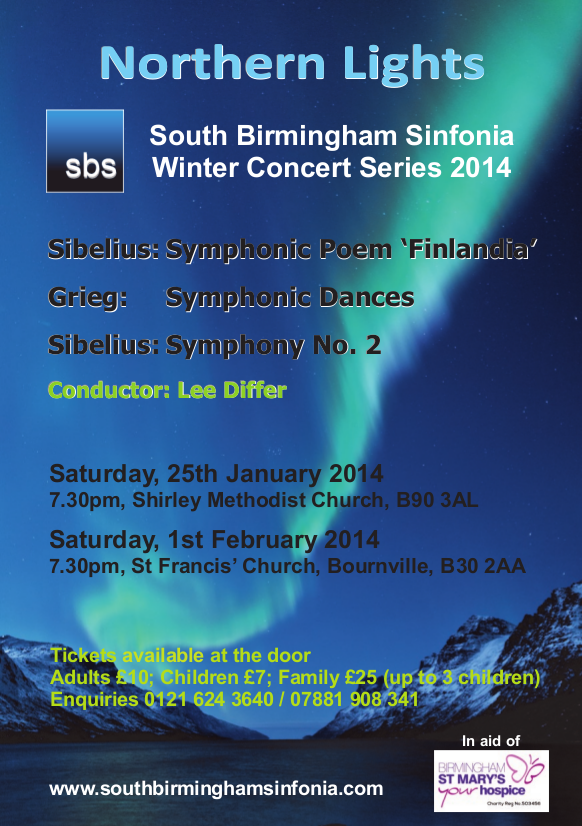Our winter 2014 concert series took place early in 2014 with performances on 25th January 2014 at Shirley Methodist Church, and on 1st February 2014 at St Francis’ Church, Bournville. The programme was as follows.
Conductor: Lee Differ
Sibelius’ Finlandia
Finlandia is a well-known and much-loved tone poem by Jean Sibelius (1865-1957). Composed in 1899 (with a revision in 1900) it is a powerful statement of Finnish nationalism against the Russian Empire (part of which Finland was at the time) and particularly against Russian censorship.
With this background one can expect some turbulent music and strong statements, and we are not disappointed. The conflict grows out of the slow introduction and is transformed to a more joyful march, before giving way to perhaps the best known of all Sibelius’s tunes. Its folk-like melody has been used as a hymn tune and as a national song in Finland, but was composed originally by Sibelius for this very work.
The piece ends on a with a final affirmation of the march-like theme.
Grieg’s Symphonic Dances
The four Symphonic Dances, Op 64, by Edvard Grieg (1843-1907) were written around 1896 and were inspired by Norwegian folk works collected by Ludvig Mathias Lindeman.
- Dance No. 1, G major, Allegro moderato e marcato
- Dance No. 2, A major, Allegretto grazioso
- Dance No. 3, D major, Allegro giocoso
- Dance No. 4, A minor, Andante: Allegro risoluto
Sibelius’ Second Symphony in D
Sibelius’ second symphony is one of the best known of his seven symphonies and was composed in 1901-2. Unlike some of his later symphonies it is framed in a traditional four-movement structure: a lively first movement in sonata form is followed by a slow second movement and a scherzo which leads directly into a rousing finale. However, we also find Sibelius’ inventive use of musical form to support the growth of the music from the very first tentative gestures to the final triumphant end.
- Allegretto – Poco allegro – Tranquillo, ma poco a poco ravvivando il tempo all’allegro – Poco largamente – Tempo I – Poco allegro
- Tempo andante, ma rubato – Poco allegro – Molto largamente – Andante sostenuto – Andante con moto ed energico – Allegro – Poco largamente – Molto largamente – Andante sostenuto – Andante con moto ed energico – Andante – Pesante
- Vivacissimo – Lento e soave – Tempo primo – Lento e soave – (attacca)
- Finale: Allegro moderato – Moderato assai – Meno moderato e poco a poco ravvivando il tempo – Tempo I – Largamente e pesante – Poco largamente – Molto largamente

